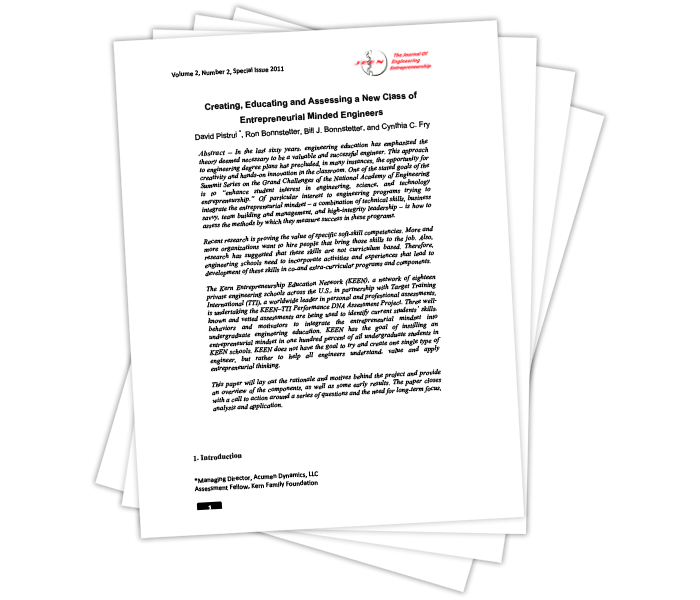
Apr 10, 2019
A system for predicting potential of success of an individual for a particular job or task. Behavioral and values information is derived from the individual. This information is then analyzed and compared against standards for behavior and values previously calculated for the specific job. An evaluation can then be made of the applicant’s responses to the standards to predict success of a perspective employee for the particular job, or to attempt to improve performance of a current employee for a specific job.

Apr 3, 2019
There is a great need to develop a new class of entrepreneurially minded engineers in America. The research presented in this work is an effort to address these dire needs by identifying the required competencies, behaviors and motivators.

Apr 3, 2019
Drawing from a data sample of 4,965 undergraduate students, and 313 EMEs, this paper employs a combination of descriptive and multivariate methods and techniques to address the following opportunities: 1 – Mapping the behavioral styles, motivators and personal and professional skills of practicing EMEs to establish an industry benchmark, 2 – Creating a series of undergraduate maps that profile the behavioral styles, motivators and personal and professional skills of engineering students participating in KEEN programs, and 3 – Mapping, analyzing and comparing the behavioral styles, motivators and personal and professional skills of EMEs, engineers and undergraduate engineering students.

Apr 3, 2019
This research examined the construct validity of the TTI survey and its ability to distinguish between engineers and entrepreneurially-minded engineers (EMEs). It is reasonable to conclude that time on the job does not affect behaviors, values and professional skills of engineers. Further, considering graduate degree attainment, only one professional skill is found to be significantly different: presenting. Therefore, graduate degree attainment does not affect behaviors, values and professional skills of engineers.

Apr 3, 2019
This study found that men from the sales and executive professions had higher DISC D scores than women; females from the sales and executive professions had higher PIAV Traditional scores than men; sales professionals had higher DISC I scores than executives; and sales professionals had higher PIAV Individualistic scores than executives.




